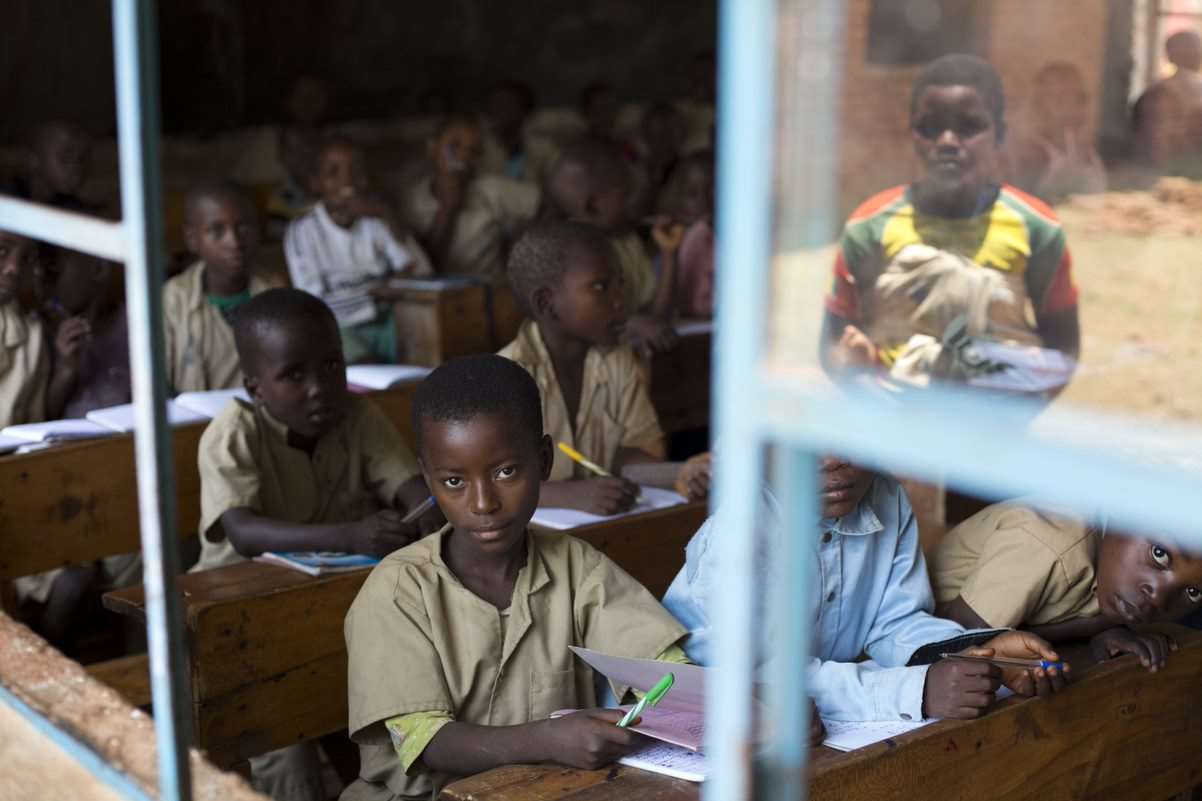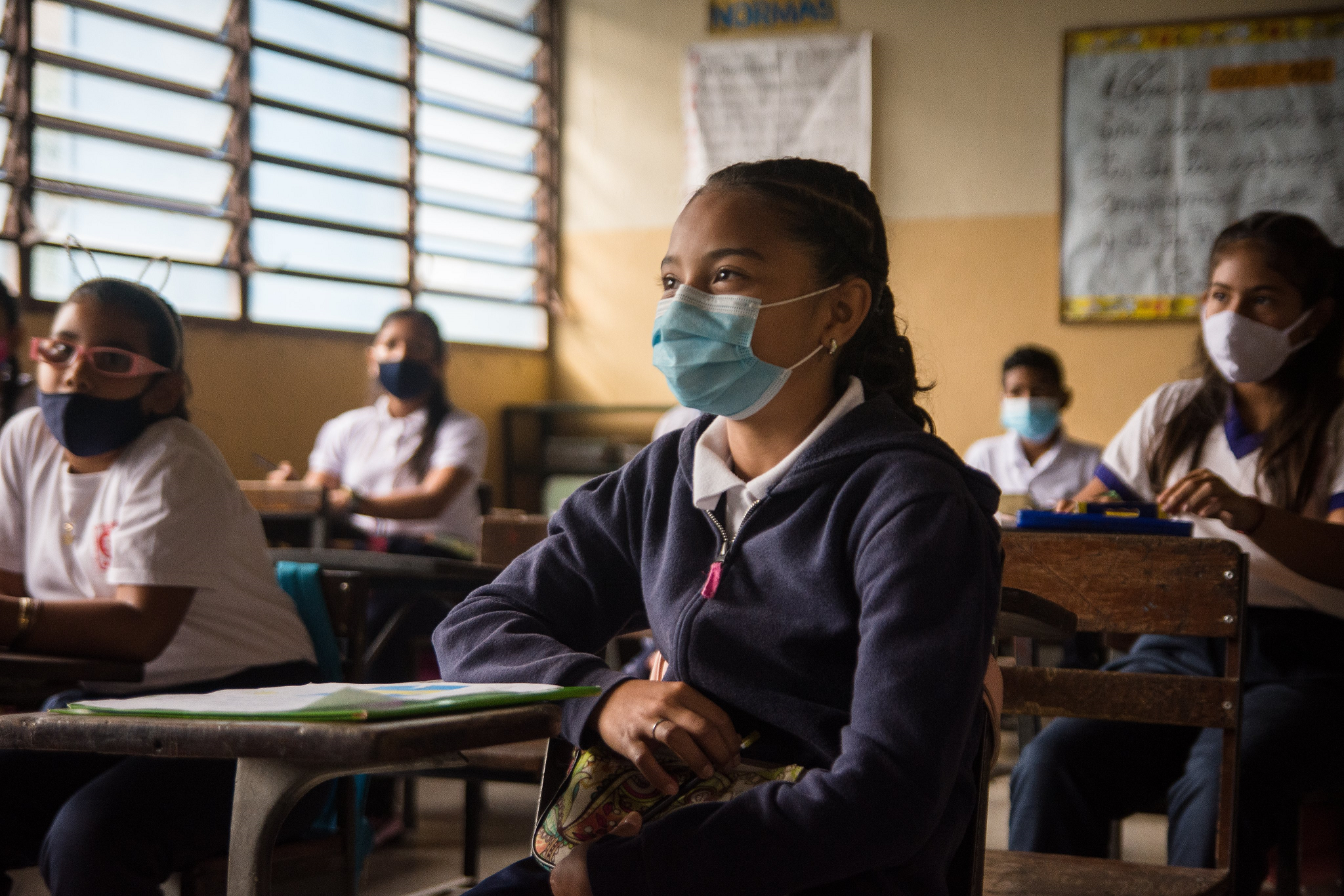Education Cannot Wait Announces US$12 Million Catalytic Grant for Multi-Year Resilience Programme in Burundi

Delivered in partnership with World Vision International and UNICEF, the programme seeks to catalyze an additional US$18 million to reach 300,000 vulnerable children and adolescents
31 December 2021, New York – In response to interconnected crises that have left 1.9 million children and adolescents out of school in Burundi, Education Cannot Wait (ECW), the UN’s global fund for education in emergencies and protracted crises, announced today US$12 million in catalytic seed funding to roll out the first Multi-Year Resilience Programme in the country.
Delivered in coordination with the Government of Burundi by consortia led by World Vision International and UNICEF, the three-year programme seeks to mobilize an additional US$18 million from public and private donors.
The ECW seed funding grant will reach more than 130,000 girls and boys, over half of whom are girls. Fully funded, the programme will reach more than 300,000 children and adolescents impacted by the interconnected crises of COVID-19, climate change and conflict. The programme will reach returnee, internally displaced and other vulnerable children with access to pre-primary (10%), primary (70%) and secondary (20%) education.
The Director of Education Cannot Wait, Yasmine Sherif, said: “The children and youth of Burundi deserve the safety, protection, hope and opportunity that quality education environments provide. This is their inherent human right. By investing in education for every girl and boy in Burundi, we are investing in young people, their future, as well as in economic security, peace and sustainable development as the nation arises from the multiplying shocks of climate change, conflict, COVID-19, displacement and socio-economic instability.”
The Minister of National Education and Scientific Research of Burundi, Professor Francois Havyarimana, said: “In Burundi, the education sector is severely lacking in resources, but the Government is committed to coordinating humanitarian initiatives to support its efforts to implement reforms in this sector with the objective of quality education for all. While these reforms have created enormous needs in terms of both human and financial resources, including a large number of teachers with a better capacity to respond to the increase in the number of learners and to changes in the curriculum, climate-induced disasters have repeatedly damaged educational facilities, worsening the situation. The Burundi Government, through the Ministry of National Education and Scientific Research, is honored to partner with ECW and its partners World Vision and UNICEF to ensure continuity of learning to Burundian children – in particular, the most vulnerable who are affected by recurrent humanitarian crises.”
The UNICEF Representative, John Agbor, said: “UNICEF is present in Burundi since 1967, accompanying the Government in the realization of every child’s rights, including the fundamental right to education. Notable progress has been made in basic social sectors, including education – especially in terms of enrolment rates and school attendance by girls. However, these positive results are threatened by a multi-faceted crisis. Internal displacement, the effects of climate change, COVID-19 and other endemic diseases are negatively impacting the schooling of children. It is urgent to curb school interruptions, which are a source of dropout. This new multi-year programme will support learning continuity for all children in the target provinces. It will also reduce risks of exploitation and strengthen the resilience of vulnerable families – particularly girls and women – through capacity-building in negotiation, health and well-being management, and access to economic opportunities.”
The National Director of World Vision International Burundi, Marthe Mbengue, said: “With the significant return of Burundian refugees and increased internal displacement due to natural disasters, schools and relocation sites hosting displaced children are experiencing excessive numbers, negatively impacting learning environment conditions. Some locations are also affected by disasters exacerbated by the socio-economic impact of COVID-19 and recurrent endemic diseases such as cholera and malaria. In a recent visit to World Vision International field operation areas in the country, I was able to speak with primary school children who shared their dreams of becoming doctors, military officers, presidents, teachers, businesswomen and more. This programme is timely in Burundi and will assist the most vulnerable children affected by displacement and in host communities to fulfill these dreams – strengthening the education system and environment at all levels and enhancing the resilience of families.”
A Vast Humanitarian Crisis
Approximately 2.3 million people are in need of humanitarian assistance in Burundi today, with 700,000 in acute humanitarian need.
Following an era of instability, hundreds of thousands of Burundians are returning home. The influx of returnees is straining budgets and derailing efforts to provide universal, equitable access to education.
Climate change is having a devastating impact on the people of Burundi. Schools have been destroyed by a rise in severe storms, populations have been displaced, and children and adolescents are at high risks of dropping out of school, child labor and exploitation, early marriage, gender-based violence and other violations of their human rights.
Building Back Better
The Multi-Year Resilience Programme seeks to provide holistic education solutions to address these challenges, while also improving protection and well-being for vulnerable children and adolescents.
The programme aims to remove the structural barriers that prevent vulnerable children and youth from accessing quality and equitable inclusive education. Key activities include the delivery of safe, protective and resilient learning spaces for children, and support to teachers so they can deliver quality learning outcomes as well as mental health and psychosocial support.
In responding to increasingly severe climate shocks, the COVID-19 pandemic and other crises, the programme will develop schools’ and authorities’ institutional capacities to develop the plans, policies and coping mechanisms needed to build long-term resilience.
Note to Editors
For Press Inquiries:
Anouk Desgroseilliers:
adesgroseilliers@un-ecw.org
+1-917-640-6820
Kent Page:
kpage@unicef.org
+1-917-302-1735

